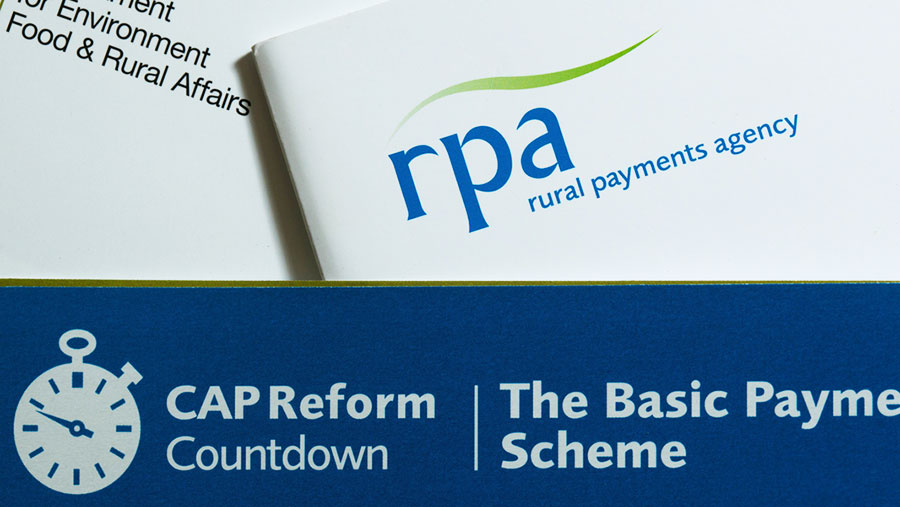Nearly 97% of farmers paid BPS cash in England
 © Tim Scrivener
© Tim Scrivener Almost 97% of farmers and land managers in England have now received their annual direct farm payment, the latest official government figures reveal.
The Rural Payments Agency (RPA) said basic payments worth £1.69bn had been made to farmers by 20 January.
This surpasses last year’s record performance for December when 95.7% of Basic Payment Scheme (BPS) claims were paid, worth a total of £1.64bn.
See also: What the new Agriculture Bill contains for farmers
NFU vice-president Stuart Roberts said it was “really encouraging” that the vast majority of farmers have received their 2019 BPS money.
“This should be the bar for performance in the coming years before direct payments are gradually phased out and uncertainty increases,” he added.
About £109m has so far been paid for 2019 Countryside Stewardship (CS) and Environmental Stewardship (ES) agreements. This is more than double the amount paid out this time last year.
Green schemes
The RPA has confirmed that CS and ES payments will be in one full instalment, rather than two payments as happened in previous years.
Af of 20 January, 62% of ES agreements have been paid their full payment worth a total of £101m. And 18% of CS agreements have been paid their full payment worth a total of £7.64m.
However, farmers with outstanding payments have been told to expect their payments by the end of June, with no earlier dates given.
NFU deputy president Guy Smith said having such a long payment window poses many issues with financial planning, as farmers have already foregone income to carry out environmental work.
“We would urge the RPA to pay this money in a timely fashion,” said Mr Smith.
“This approach hopefully marks a shift towards a better service for farmers and land managers and will allow farmers to continue their hard work safeguarding our countryside.”
Just under 90% of CS and ES customers who received a bridging payment on their outstanding stewardship claims in July last year have now had their full payment processed.
BPS 2020
Meanwhile, for 2020, the application window for BPS and the claim window for CS and ES will open in March. The RPA encourages all farmers and land managers to submit their applications and claims as soon as possible.
The level of funding available for direct payments for 2020 will be the same as for 2019, with the rates for BPS payments to be confirmed later this year.
Farmers with an ES or CS agreement expiring this year can sign up for a new CS agreement to start in 2021, when the application window opens in February.
With the government’s post-Brexit Environmental Land Management (ELM) scheme a few years away, the RPA said farmers entering into a new CS agreement can continue delivering benefits on their land, making a difference to the environment now by joining an improving and expanding scheme.
CLA asks government to delay BPS phase-out
The government has been urged to delay the start of phasing out direct payments until a comprehensive business adaptation programme is in place – providing grants, advice and training.
Country Land and Business Association (CLA) president Mark Bridgeman said the Agriculture Bill provides a “once-in-a-lifetime opportunity’ to reshape food and farming policy for British agriculture.
But Mr Bridgeman warned the government against rushing the transition to the new payments model.
While the Environmental Land Management (ELM) scheme is not due to be universally available for four years, the transition period towards the new regime is set to begin in less than a year.
“We still have no idea how ELM will work in practice, and what it will mean for individual farmers,” Mr Bridgeman noted.
“We have a tremendous opportunity here, but removing direct payments before the new schemes are ready will put otherwise viable businesses at risk unnecessarily.”
The ELM scheme, as set out in the Agriculture Bill, is the centrepiece of the government’s proposed new post-Brexit payments system, which will pay farmers “public money for public goods”.
This includes better air and water quality, higher animal welfare standards, improved access to the countryside and measures to reduce flooding.
